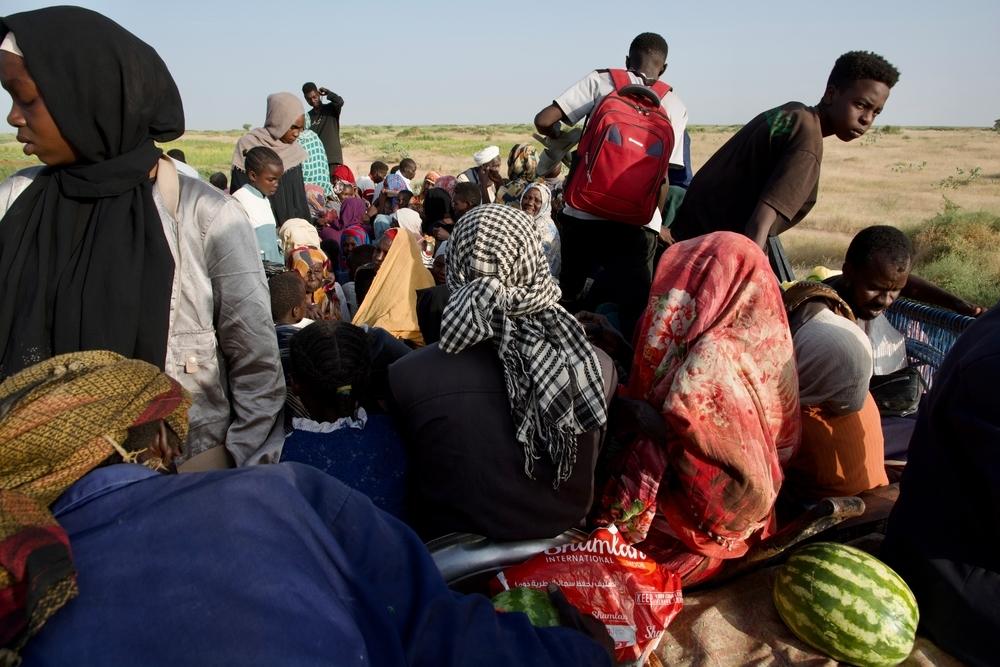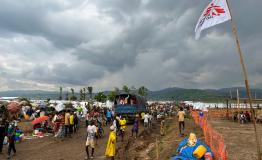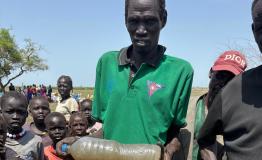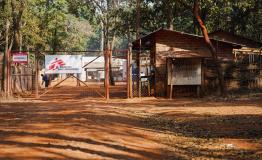West Bank,1 July, Jerusalem – More than 40,000 people in the northern West Bank remain forcibly displaced, cut off from their homes and left with very limited access to basic services and healthcare five months after the launch of the Israeli military operation ‘Iron Wall’. This large-scale military campaign has seen Israeli forces raid and violently empty well-established refugee camps in northern West Bank. Médecins Sans Frontières (MSF) warns that people are facing deteriorating health and living conditions, as the Israeli forces are still causing widespread destruction, and occupying the three refugee camps of Jenin, Tulkarem and Nur Shams – preventing any return and barring access.
“After five months, the military operation continues. The camps remain sealed off, with Israeli soldiers actively preventing anyone from entering. Families are still in limbo, and we’re worried that humanitarian needs will keep escalating,” says Simona Onidi, MSF project coordinator in Jenin and Tulkarem.
To mark this grim milestone, MSF is releasing a new advocacy briefing note, Five Months Under Iron Wall, highlighting the human toll of prolonged displacement in the West Bank. The note draws on MSF’s field presence, operational data, and nearly 300 interviews conducted in mid-May across 17 locations where MSF works in northern West Bank, with forcibly displaced refugees from the three camps.
The camps remain sealed off, with Israeli soldiers actively preventing anyone from entering. Families are still in limbo, and we’re worried that humanitarian needs will keep escalatingSimona Onidi, MSF project coordinator in Jenin and Tulkarem.
Findings show that displacement-affected communities face growing instability and unmet needs such as access to healthcare and to regular food and water. Nearly half of the people spoken to have been forcibly displaced three or more times in four months, while nearly three out of four are unsure if they can stay where they currently are. Over a third report feeling unsafe where they currently reside. Mental health needs are also mounting, especially among women and children, as repeated displacement, uncertainty, and being violently displaced compound distress.
“We live in a constant state of fear. Israeli forces frequently patrol the area near where I’m staying. My family and I keep our bags packed at all times, ready to flee if we’re displaced again.” – Displaced woman from Nur Shams Refugee Camp.
MSF’s findings also reveal a disturbing pattern of violence and obstruction targeting displaced residents attempting to return to their homes in the camps, with over 100 incidents of indiscriminate violence reported. This includes shootings, assault, and detentions and is affecting people of all ages and genders. Some families found their homes burned, looted, or occupied; others were explicitly threatened and told never to come back. Returns are heavily restricted, with only limited time granted or access denied altogether.
We live in a constant state of fear. Israeli forces frequently patrol the area near where I’m staying. My family and I keep our bags packed at all times, ready to flee if we’re displaced againDisplaced woman from Nur Shams Refugee Camp.
"When I came back to my home in the camp, it had been burned down — and my neighbour had been killed.” – Displaced man from Tulkarem Refugee Camp.
One in three people could not reach a doctor when needed – mainly due to cost, distance, or lack of transport. Nearly half spoken to report inconsistent access to food and water, and 35 per cent of those with chronic illnesses are unable to get regular medication.
In response to the unfolding crisis, MSF set up mobile medical teams which run in more than 40 public sites, displacement shelters in Jenin and Tulkarem and basic health care centres run by Ministry of
Health facilities, offering basic health care services as well as mental health support and health promotion activities.
The Iron Wall military operation is neither the beginning nor the end of the violence endured by Palestinians in the West Bank. This latest escalation comes on top of an already dire situation that has been steadily deteriorating, particularly since October 2023. As MSF’s February 2025 report Inflicting Harm and Denying Care shows, the West Bank has long been the site of repeated violations against civilians and medical organisations, and the current humanitarian crisis in the northern governorates cannot be understood in isolation from the broader context of coercive, violent measures and annexation.
“What we’re seeing in the northern West Bank is not just a humanitarian emergency; it’s a man-made crisis, prolonged by design, and worsening by the day,” says Simona Onidi. “Humanitarian assistance is insufficient and inconsistent, organisations must step up their response to provide people with shelter, medical care, mental health support, and protection. We also call for an end to the Israeli military operations and lethal use of force, leading to death and injuries, and for displaced communities to be allowed to return safely and with dignity”.



